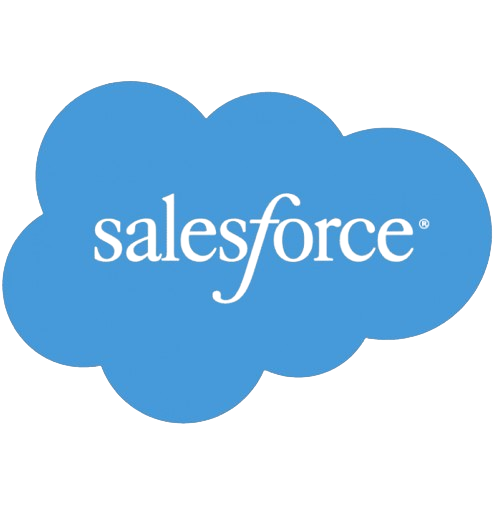ERP selection criteria: Choosing an ERP System 2026
Updated on March 2, 2026
Selecting the right ERP (Enterprise Resource Planning) system is like choosing the heart of your business operations. The right choice can pump life into your processes, synchronize various departments, and empower your team to achieve remarkable efficiency. But with the myriad of options available, how do you ensure you’re making the best choice? Let’s dive into the importance of selecting the right ERP system, explore the top selection criteria, and understand how Cloud Consulting Inc. Inc. can assist you in this critical journey.
Book an ERP Consultation Session with CCI Today!
Importance of ERP Selection Process & Choosing the Right ERP System
Choosing an ERP system is not just a technological decision; it’s a strategic one that affects every aspect of your business. A well-chosen ERP system can integrate your core processes, provide real-time insights based on latest ERP trends, and smoothen operations, ultimately leading to increased productivity and profitability. On the other hand, a good choice can result in wasted resources, operational disruptions, and employee satisfaction.
Imagine having a system that connects your sales, finance, manufacturing, and human resources departments, providing a single source of truth. This integration allows for better decision-making, faster response times, and a cohesive strategy. The right ERP system can transform your business only if it aligns with your specific needs and goals.
Related Post: Top ERP Software 2026
Top 7 ERP Selection Criteria Checklist 2026
1. Business Requirements Alignment
The first step in selecting an ERP system is to understand your business requirements thoroughly. What are your pain points? What processes need improvement? Ensure the ERP system you choose can address these specific needs. For example, ERP for a manufacturing company will have different requirements compared to a retail business. It’s essential to gather input from all departments and stakeholders to create a comprehensive list of needs. By doing so, you ensure that the ERP system you select will address the unique challenges and opportunities within your business.
2. Scalability and Flexibility
Your business is likely to grow and evolve, so your ERP system should be able to scale with you. Look for a system that can accommodate growth in users, transactions, and functionality. Flexibility is also crucial; the system should adapt to changing business processes without requiring extensive customization. Imagine your business five or ten years from now – the ERP system you choose today should be able to grow alongside it, providing the tools and capabilities you need to stay competitive and efficient as your operations expand.
3. User-Friendliness
An ERP system will be used daily by your employees, so it needs to be intuitive and easy to use. A complex system can lead to frustration and low adoption rates. Make sure to involve end-users in the selection process to ensure the system meets their needs and preferences. User-friendliness is not just about having a simple interface; it’s about having a system that empowers your employees to perform their tasks efficiently and effectively, reducing the learning curve and increasing productivity.
4. Integration Capabilities
Your ERP system should integrate effortlessly with your existing software and hardware. This includes your CRM, e-commerce platform, accounting software, and more. Integration reduces data silos and ensures that information flows smoothly across your organization. Imagine the power of having all your business data connected, providing you with real-time insights and the ability to make informed decisions quickly. Integration capabilities are critical for achieving this level of operational harmony.
5. Vendor Support and Reputation
The support provided by the ERP vendor is crucial for a successful implementation. Research the vendor’s reputation, customer reviews, and support services. A vendor with a strong track record and responsive support team can make a significant difference in your ERP journey. Knowing that you have a reliable partner to turn to when issues arise or when you need guidance can provide peace of mind and ensure that your ERP system continues to meet your needs long after the initial implementation.
6. Total Cost of Ownership (TCO)
Consider not just the upfront costs of the ERP system but also the long-term costs. This includes licensing, implementation, training, maintenance, and potential upgrades. A low initial cost might be attractive, but hidden costs can add up over time. Make sure you have a clear understanding of the TCO before making a decision. It’s important to invest in a system that offers value over the long term rather than just a short-term solution that may end up costing more in the long run.
7. Data Security and Compliance
Your ERP system will handle sensitive business data, so security is paramount. Ensure that the system has strong security features to protect against data breaches and cyber threats. Additionally, the system should comply with industry regulations and standards relevant to your business. The safety of your business data is not just about protecting against external threats; it’s also about ensuring that your internal processes and data handling practices are secure and compliant with legal requirements. This helps protect your business reputation and ensures the trust of your clients and partners.
Learn More About CCI’s ERP Professional Services.
ERP Services Provided by Cloud Consulting Inc
At Cloud Consulting Inc., we understand that choosing the right ERP system can be overwhelming. That’s why we offer comprehensive ERP services to guide you through every step of the selection and implementation process.
-
ERP Consulting Services
Our experienced consultants work closely with you to understand your unique business needs and recommend the best ERP solutions. We help you define your requirements, evaluate potential systems, and make an informed decision.
-
ERP Implementation Services
Once you’ve chosen your ERP system, our team ensures a smooth implementation. We manage the entire process, from system configuration and data migration to training and go-live support. Our goal is to minimize disruption and ensure a successful transition.
-
ERP Integration Services
Integration is key to unlocking the full potential of your ERP system. We ensure seamless integration with your existing software and systems, enabling a unified and efficient workflow across your organization.
-
ERP Customization Services
Every business is unique, and sometimes out-of-the-box solutions don’t meet all your needs. Our customization services ensure that your ERP system is tailored to your specific requirements, providing the functionality you need to thrive.
-
ERP Support and Maintenance
Post-implementation support is critical for long-term success. We provide ongoing support and maintenance services to ensure your ERP system continues to perform optimally. From troubleshooting issues to performing upgrades, we’re here to help.
Conclusion
Selecting the right ERP system is a journey that requires careful consideration, thorough evaluation, and strategic planning. It’s an investment in your business’s future, promising improved efficiency, better decision-making, and enhanced productivity. By focusing on the key selection criteria and leveraging the expertise of Cloud Consulting Inc, you can navigate this complex process with confidence and achieve the best possible outcome for your organization.
FAQs
What is an ERP system?
An ERP (Enterprise Resource Planning) system is a software solution that integrates and manages core business processes, such as finance, human resources, manufacturing, and supply chain, within a single system.
Why is selecting the right ERP system important?
Choosing the right ERP system is crucial because it impacts every aspect of your business operations. The right system can streamline processes, improve efficiency, and provide valuable insights, while the wrong system can lead to operational disruptions and wasted resources.
What factors should I consider when selecting an ERP system?
Key factors to consider include alignment with business requirements, scalability, user-friendliness, integration capabilities, vendor support and reputation, total cost of ownership, and data security and compliance.
How can Cloud Consulting Inc. help with ERP selection and implementation?
Cloud Consulting Inc. offers comprehensive ERP services, including consulting, implementation, integration, customization, and ongoing support. Our experienced team guides you through every step of the process to ensure a successful ERP journey.
What are the benefits of using an ERP system?
Benefits of an ERP system include improved efficiency, real-time data insights, enhanced collaboration, streamlined processes, better decision-making, and the ability to scale and adapt to changing business needs.
How long does it take to implement an ERP system?
The implementation timeline varies depending on the complexity of the system, the size of your organization, and your specific requirements. It can take anywhere from a few months to over a year.
Can an ERP system be customized to meet my specific needs?
Yes, many ERP systems offer customization options to ensure they meet your specific business needs. Cloud Consulting Inc. provides customization services to tailor the system to your unique requirements.





